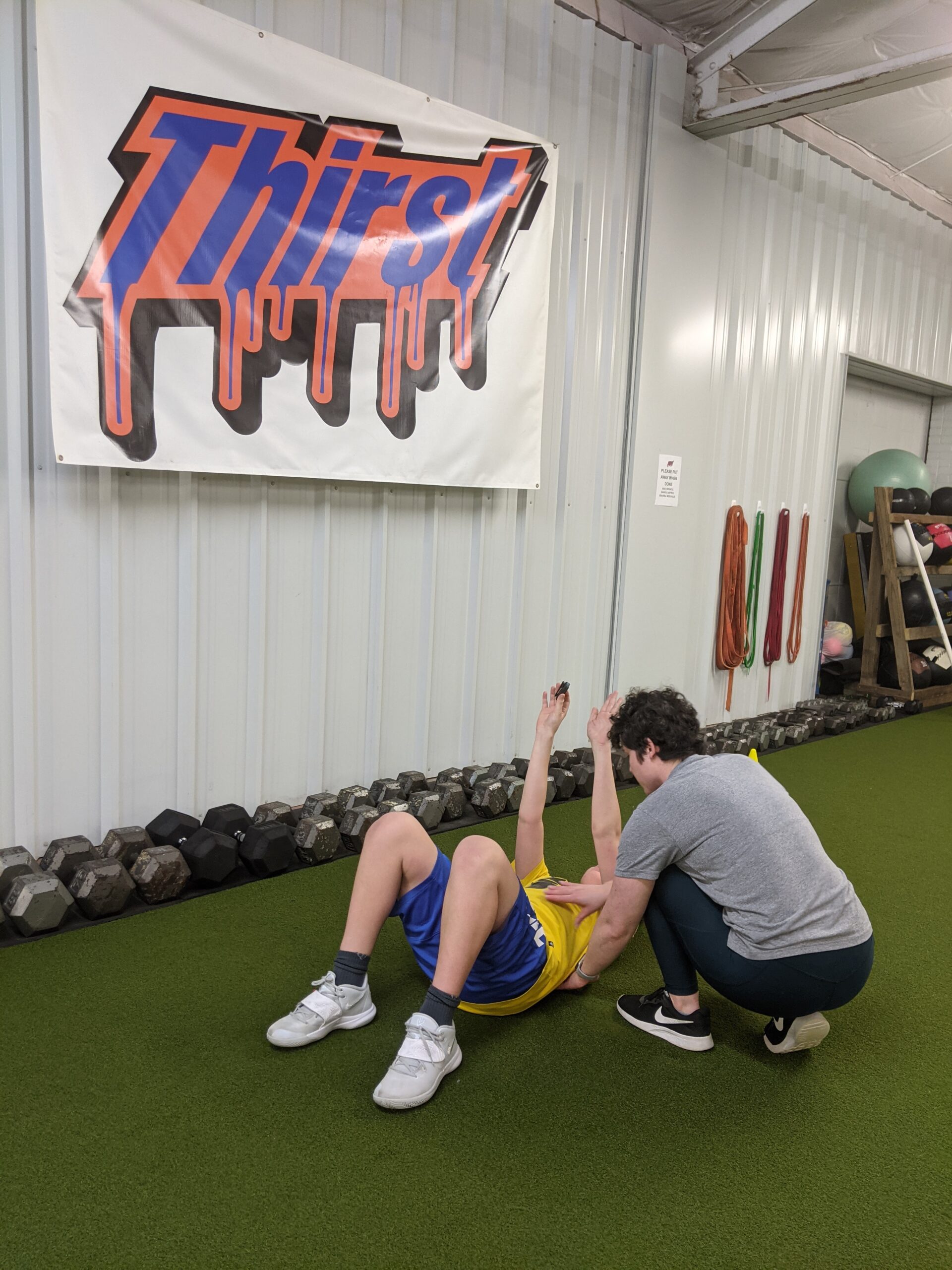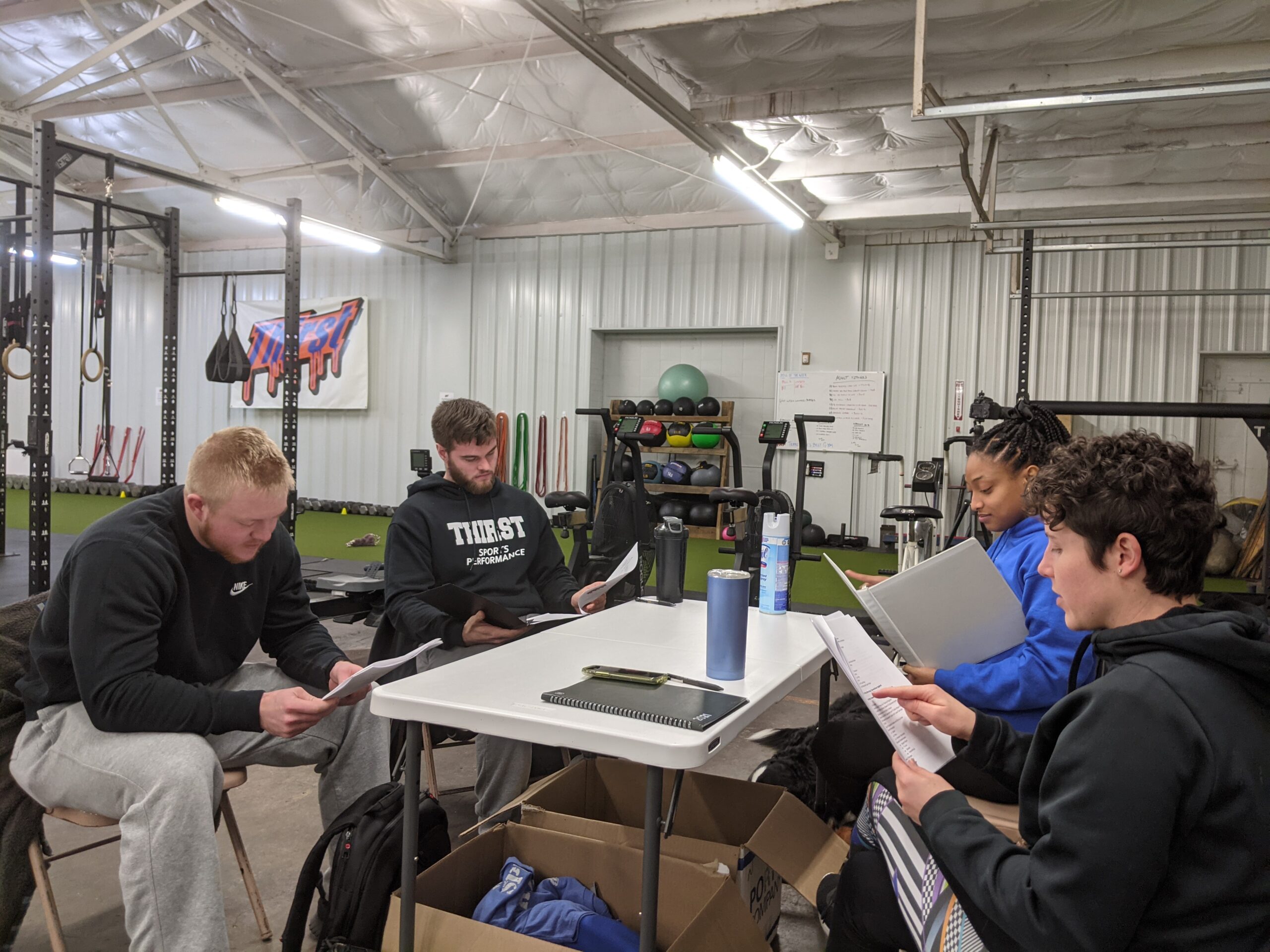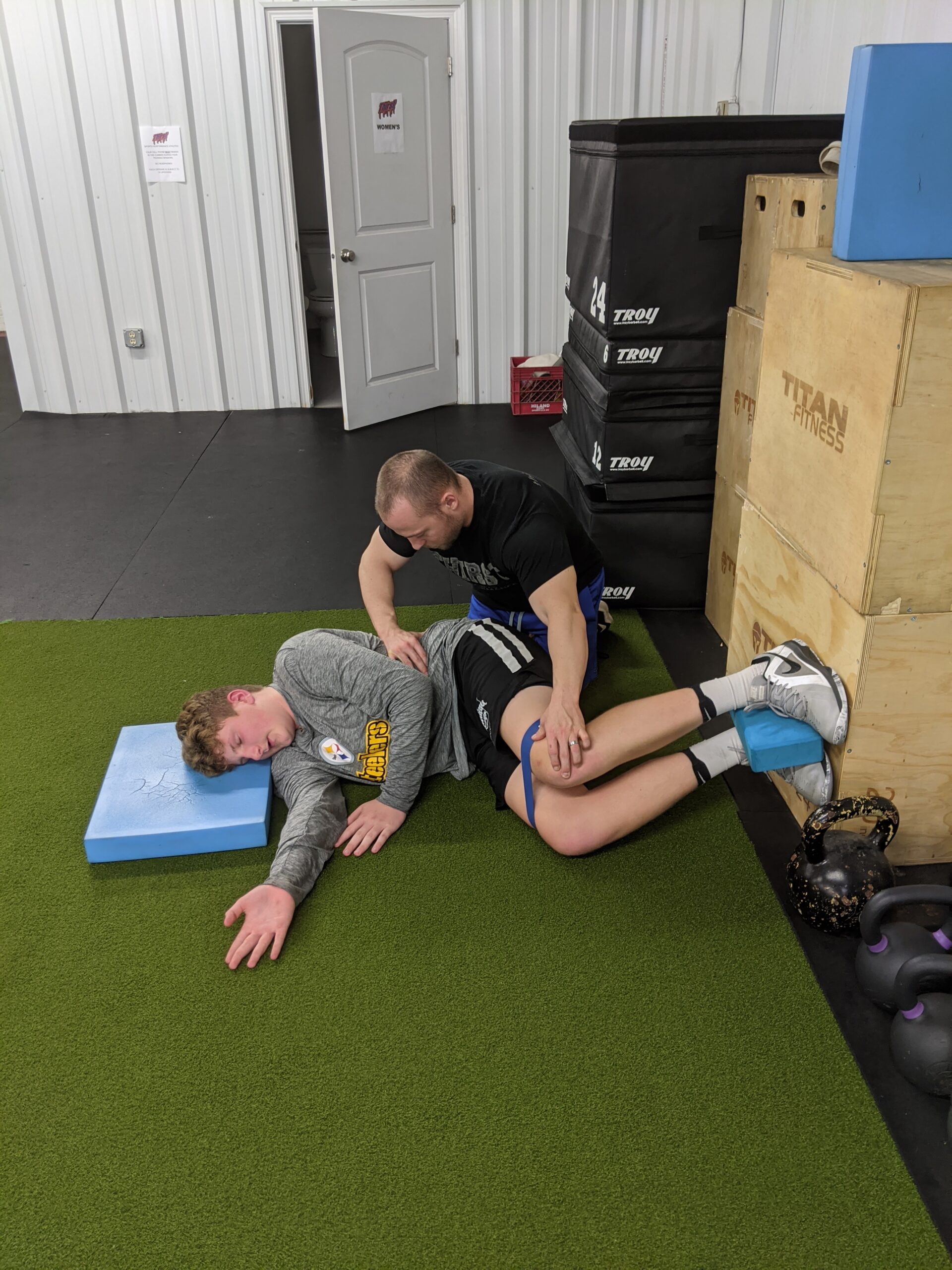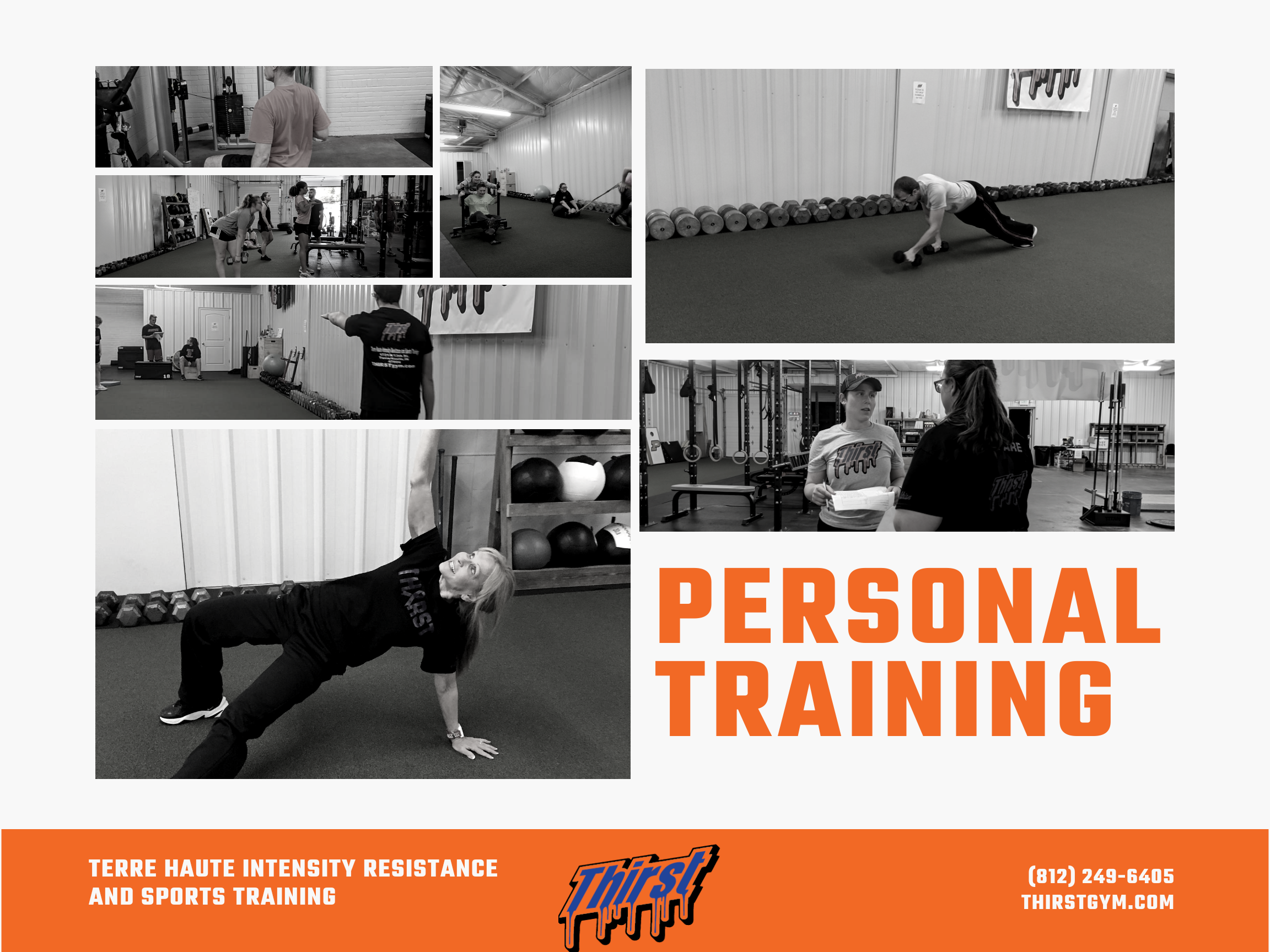What To Look For In A Personal Trainer
When it comes to your personal health, seeking out a health professional, especially a personal trainer can be a big step. You’re looking for someone to help you lose weight, gain strength, improve confidence, and overall help guide you towards better health decisions to ultimately improve your quality of life. As someone that’s been in the personal training field for over a decade at the time of this writing, I can tell you that I’ve seen just about everything. Just as with any field or profession, there are going to be amazing professionals and then those in the field that give our profession a bad wrap. So to help you not only find a good personal trainer (or personal training program), but to help you make safe and effective healthy progress, here our our top things to look for in a personal trainer.
Track Record
This might seem a bit obvious to many, but the first thing you’re going to want to inquire about is the track record of the personal trainer or their program. What do others have to say? How reliable are they? How is their customer service? How have they done in providing progress? And ultimately, what kind of population do they have experience working with?

If you’re goal is to lose weight, but your personal trainer only has experience helping people gain strength, that might not be the best fit. I’m not saying they can’t help (because, ideally they should still be educated enough to help you), but you can probably find a better option based upon your goals. You’ll also want to see how they are with other aspects in the industry. Are the connected with other professionals (physical therapy, chiropractic, nutritionists, dieticians, orthopedic doctors, etc.)? The more professional connections they have, probably the better. This lets you know that they work closely with other professionals that way when things get outside their scope of practice, they know how to refer out.
Take home point: Do your homework. Don’t be afraid to ask for their results or to speak with a current or previous client.
Education
Without a doubt, the next big thing you want to look for is education. I really like Dave Tate’s list of things you want to look for in a strength coach, but applying that to personal training as well.
- Where did they go to school?
- What certifications do they have?
- Where did they intern?
- Who mentored them? Who did they learn under?
- How long have they been practicing/training?
- Do they do something competitive themselves? (bodybuilding, strongman, powerlifting, marathons, CrossFit, etc.)
While I don’t think education is the only thing you look at, but knowing that you’re working with someone that has spent a fair amount of time and money into their craft shows that they aren’t only educated, but they are committed to their craft and likely are constantly learning. The fitness industry is always evolving and what we knew 10 years ago is vastly different than today. Education is a good buffer to ensure your trainer is putting in their time to staying ahead of the curve.
School And Certifications
College is entirely an optional aspect to personal training. I’ve been on both sides where I know personal trainers that have no formal education, and are amazing personal trainers. On the other side of the coin though, I’ve known people to get their graduate degrees and hardly know how to communicate and write efficient training programs. I do believe that someone that has a minimum of a bachelor’s degree in exercise science or a related field is a good buffer though. In most cases, they understand good anatomy and physiology, have taken labs to have more hands-on experience, and have had some sort of mentorship to guide them.
As far as certifications, this should be a bare minimum. It not only will legally cover the trainer, but it shows that they have some education when it comes to the body and exercise knowledge. With that said, the only requirement to get a Certified Personal Trainer (CPT) certification is that the person taking the exam be 18 years of age. If they pass the exam, they can work with people (legally). They traditionally require continuing education units (CEU’s), and I have known trainers that just let theirs go and never keep it up to date. This is why certifications are just a huge controversial subject. While it’s a start, for majority of them, it doesn’t mean a whole lot. If you’re going to hunt for someone with certifications, look for things like the Certified Strength and Conditioning Specialist (CSCS), Strength and Conditioning Coach Certified (SCCC), USA Weightlifting (USAW) Sports Performance, and International Youth Conditioning Association (IYCA). There are certainly others, but these are excellent ones to see on a resume or training program information sheet.
Experience, Internships, And Mentoring
After general education, the next thing you want to look for is their work experience and internship experience. In my opinion, this is the most important aspect to look for. Personal training and strength and conditioning is a very hands-on field, and spending ample time in facilities and with other high end coaches and trainers is the best way to have a true understanding of exercise prescription and coaching. Here at THIRST, we have a 500 hour internship program, where we mentor and teach young professionals what it takes to train, coach, write training programs, conduct assessments, and get hundreds of coaching hours working with real people and athletes.

In today’s personal training, too many trainers are focused on making workouts to put on social media with no experience working with real life people, in-person. On top of that, once they pass their CPT certification, they announce “Now Accepting Personal Training Clients!”, on their social media platform. These are usually the trainers to avoid. While marketing is obviously a piece of the profession, find the trainers and coaches that have spent time training people under other professionals eyes. Part of what we do with our internship program is have hard discussion with our interns about how they can improve and coach an exercise in real time. These are the trainers that not only will be writing amazing programs, but keeping you safe and making progress for a long time.
Another piece of the pie is to just have some work experience. Work experience is always a catch-22, where you need experience to get a job but jobs give you experience. I don’t think there is a certain time someone needs to have been a trainer before you can trust them and hire them, but clearly the longer they have been in business or working with clients and athletes the more you can bet they will have the professional experience and superb coaching and programming.
Competitive With Goals
As someone that has been an elite competitive powerlifter for over a decade, competed at a high level in wrestling, and just always been an athlete I think it’s valuable that you find a trainer that not only talks the talk, but walks the walk. You want to find a professional that has been training, competing, and pushing themselves physically as well. Look at the trainer that’s had a weight loss journey of 50 pounds, they definitely know what it’s like to lose weight and go through the struggles – hire that guy! Relatability and being able to have a trainer understand what it’s like to push themselves and stick to hard training schedules ensure they meet their own goals.
Now, you don’t want to hire the gym-bro that has knowledge from magazines and YouTube, but I do think there is something to be said for people that have a lot of gym time. I’ve personally been in a weight room since I was 15, so chances are I’m going to learn something along the way. But people that only have gym time get stuck in a one-way street mindset. This is why education, internships, and experience are a huge piece of the puzzle.
Take home point: Find a trainer with a solid education, experience, and that walks the walk. Even if they are missing one thing, that should likely be a red flag.
Individualized Programs
While at times I think this aspect of personal training should go without saying, providing individualized programming is a huge aspect that clients are paying for. Not only should they have custom programs, there should be an initial assessment and consultation to help drive where the programming and workouts need to go. Imagine showing up at the dentist and they just choose to randomly clean teeth with random instruments and start pulling teeth. You probably wouldn’t be happy. Exercise prescription is the exact same, but we’re selecting certain exercises to meet the client where they are, to slowly move them towards their goals safely and effectively. What a younger male client does should look different than the 65 year old retired lady.

Here at THIRST, we provide each client with their own custom program after performing a free assessment and consultation. We update the program on a monthly basis as we’ve watched the client move and make progress over the month. We coach them through their programs and help them with their warm ups and movement patterns. Trainers should not be making exercises and workouts up on the fly, regardless of the business model used. We spend approximately 20+ hours a week just writing training programs for all our clients and athletes.
Take home point: They should have an assessment process and tailored programming and workouts at a minimum.
More Than Just Being Tired
As the saying goes, “Any idiot can make an idiot tired.”. While I think this is a bit much, it certainly has a point. While a good quality workout will likely make you tired, slightly sore, and feeling like you got better, it should not be based solely on how sore or tired you are. Good workouts and training involve making you better, towards your specific goals. If your trainer is literally just giving you 100 burpees or 100 box jumps, you need to run away…and fast. Exercises have purpose and part of our jobs as trainers is to improve movement quality, keep clients safe, and provide progress. The minimum effective dose is really all that’s needed for personal training. I’ve talked many clients down in terms of how many sessions per week they wanted to come see us, and I’ve not only saved them money, I’ve saved them time. Sure, some clients love a good workout and being in the gym (we’ve got a plethora of clients that love seeing us at THIRST), but for majority of clients, we understand we’re a means to their goal – and that’s entirely okay!
Take home point: Tired is not an indicator of a good workout or personal trainer.
Personality And Character
I feel like this should go without saying, but your personal trainer should behave professionally but also have some fun and be an eventful person. If your trainer isn’t helping you have fun with exercises and workouts that’s going to be a big problem when it comes to long-term commitment. We love to have fun in the gym, but also just spend good quality time with our clients outside the gym (if they so choose, of course). We host cookouts, events, and go to sporting events to just show we’re normal people like everyone else. It’s going to be much easier to continue to go work with your personal trainer if you truly enjoy going and look forward to spending 45-60 minutes with someone trying to help you improve your lifestyle and health.
Take home point: Training should be fun, enjoyable, and your personal trainer shouldn’t be a drill sergeant.
In Summary
While there can certainly be many aspects of what could make a great personal trainer, these happen to be the key aspects that I’ve noticed while being in the industry over a decade. If you’re looking for personal training, don’t feel intimidated, with some simple research and asking questions (most trainers have no issue answering questions!), you can find a personal trainer that works best for your goals and style of personal training program.









